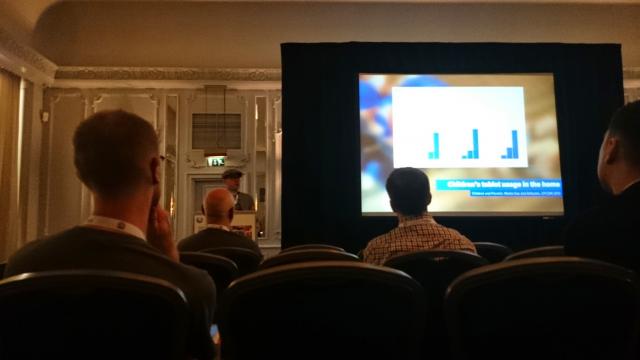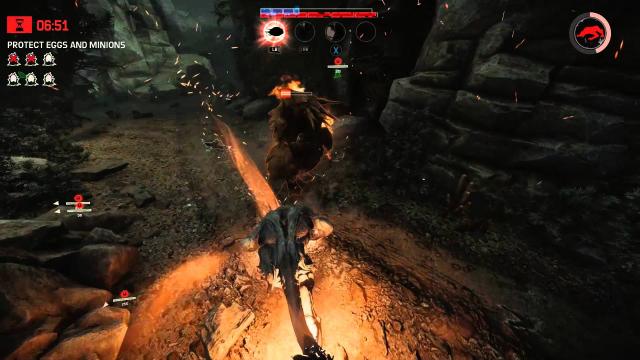
Evolve Conference '14 Overview: Indies, Cloud Gaming & Virtual Reality - Article
by VGChartz Staff , posted on 10 July 2014 / 3,719 ViewsThe Develop Brighton conference has reared its head for another year, bringing in developers from across the whole industry to talk shop. I got a press pass and travelled down to Brighton to see what was happening in world of game development.

The first day of Evolve (a prequel to the main conference), consisted of a number of great talks and presentations. Microsoft's Rob Fraser opened with a keynote on the uses of Cloud gaming and its potential, while later in the day Sony talked developers through the process of publishing games on PlayStation platforms, and highlighted the changes they've made - particularly in their attitude and mindset - since their presentation at last year's conference.
Here's a brief overview of this year's conference:
Microsoft on Cloud Gaming
Microsoft kicked things off with a 45 minute talk on the current state of Microsoft Azure - their cloud network - which games such as Halo 4 and Titanfall have already taken advantage of. During the event they showed off some new and exciting ways in which the cloud can help gamers consume their content when and where they like.

One platform in particular which showed the advantage of this was Antstream, a subscription site which allows players to access thousands of retro games at the touch of a button. All of the games run on the server, and they don’t require much power, meaning the streaming service can potentially run on any machine the user wants. Throughout the talk, Microsoft seemed quite humbled and were keen to convey the idea that they're listening to developers and are keen to get feedback from them.
Sony on Accessibility for Developers
Sony's talk covered the state of the indie development scene, with a particular emphasis on how developers can get their games onto PlayStation platforms. They spent some time highlighting the barriers they've taken down and how the process has become much more transparent. The main point Sony were eager to make was that it is very much possible for indie developers to get their games onto the PlayStation Store and into gamers' hands in a timely manner.

Agostino Simonetta chaired the talk, inviting Tom Hegarty (Director and Co-Founder of Roll7 Games), and Michael Torode (Team 17) up on stage to give their impressions of the experience. Sony claimed that over 1,000 users had signed up develop for their platforms, and that over 100 games had so far been published in the last year alone. Not bad figures but, as many in attendance highlighted, Sony still have certain substantial barriers such as quality control.
The Future of VR
Patrick O’Luanaigh from nDreams (the developers of PlayStation Home) spent a good 45 minutes explaining what the world of VR can bring to consumers, whilst giving recommendations on the do's and don'ts they’ve learnt whilst working on 40 or so VR projects. They hugely encouraged experimenting, whilst also setting some ground rules. Examples include not making games like Call of Duty for VR (the speed of the walking and disparity between walking real life and walking in a video game create considerable problems) , explaining which genres are good for VR and which aren't, and detailing why some games simply won't ever work (such as sports titles).

His talk was probably one of the best of the day, and Patrick gave better advice than many other developers at the event by exploring his own team's trial and error approach with both Project Morpheus and the Oculus Rift. One thing's for certain, VR is going to change gaming in a big way, and developers are excited about its potential.
One of nDreams’ own Oculus experiments can be seen below:
General Theme of the Show
One thing I did notice, after attending numerous talks and presentations, was that there was a central theme to the whole show. It may have been unintentional but it was definitely across the talks. This theme was of consumer choice, or as Kevin Spacey said “give people what they want, when they want it, in the form they want it in, at a reasonable price, and they’ll more likely pay for it rather than steal it”.

Whether it was Microsoft at the opening explaining how cloud gaming would allow consumers to play any of their games on any of their devices, or the VR talk on allowing players to walk around games at their own pace, and exactly how they want, the general theme was that of choice. The industry has, of course, been saying this for years, but with the technology on the cusp of a revolution when it comes to Virtual Reality, and cloud infrastructure really having a tangible difference on games, it makes all the sense in the world to give more control to the users rather than giving them less control and more restrictions.
Microsoft re-affirmed this at another talk, by saying that games are no longer one product but are instead seen as more of a service - something which can constantly evolve over the lifetime of the product, feeding the needs of consumers better as time goes on.
So that summarises the first day of talks, with some honourable mentions going to Sir Ian Livingstone for defending the games industry against traditional media, and calling for more computer science education in schools, and Chris Charla from ID@Xbox for answering questions on the current state of the Xbox indie initiative.






















 Essay Pro
Essay Pro